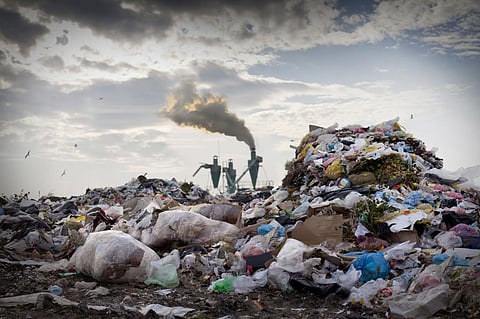

The world marked the first-ever International Day of Zero Waste on March 30, 2023, encouraging everyone to prevent and minimise waste and promoting a societal shift towards a circular economy.
The United Nations Environment Programme (UNEP) and UN Human Settlements Programme (UN-Habitat) established the day in response to the worsening impacts of waste on human health, the economy and the environment.
The day calls upon all stakeholders — including governments, civil society, businesses, academia, communities, women and youth — to engage in activities that raise awareness of zero-waste initiatives.
“The waste crisis is undermining the Earth’s ability to sustain life. Waste costs the global economy billions of dollars each year,” UN Secretary-General António Guterres said in a video message.
“By treating nature like a dumping ground, we are digging our own graves. It is time to reflect on the toll that waste is taking on our planet — and to find solutions to this gravest of threats,” Guterres added.
The day was established through a UN General Assembly resolution that followed other resolutions on waste, including the March 2, 2022 UN Environment Assembly’s commitment to advance a global agreement to end plastic pollution.
Waste generation has increased massively around the world in recent decades, and there are no signs of it slowing down, according to data analysis website Statistica. By 2050, worldwide municipal solid waste generation is expected to have increased by roughly 70 per cent to 3.4 billion tonnes.
Humanity generates more than 2 billion tonnes of municipal solid waste annually, of which 45 per cent is mismanaged, stated a press release by UNEP.
Waste comes in all forms and sizes — including plastics, debris from mining and construction sites, electronics and food. It disproportionately impacts the poor, with up to 4 billion people lacking access to controlled disposal facilities.
The International Day of Zero Waste aims to bring these myriad impacts of waste to the world’s attention and encourage global action at all levels to reduce pollution and waste.
Promoting zero-waste initiatives can help advance all the goals and targets in the 2030 Agenda for Sustainable Development, including Sustainable Development Goal 11 on making cities and human settlements inclusive, safe, resilient and sustainable and UN-mandated Sustainable Development Goal 12 on ensuring sustainable consumption and production patterns, the press briefing added.
“We need to act now,” UNEP Executive Director Inger Andersen said. “We have the technical expertise and the drive to innovate. We have the knowledge — both scientific and indigenous knowledge — to find solutions to the waste crisis.”